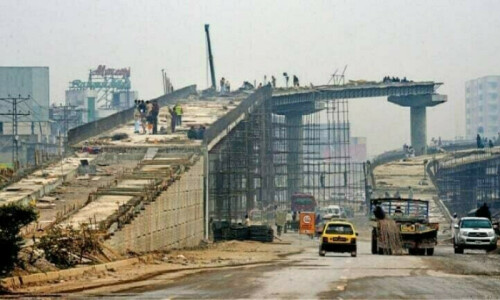YEARS of campaigning in Brussels have finally paid off with an EU Parliament vote on Thursday confirming wide-ranging trade concessions for Pakistan’s exports to the EU market from next month, under the bloc’s GSP-Plus scheme. Immediate potential gains from the duty-free or preferential duty rate access granted to the country’s 3,500 products, in particular textiles and clothing, are estimated at $500m-$1,000m in additional export revenues in one year and the creation of a million jobs. The optimal utilisation of the facility allowed by one of Pakistan’s largest trading partners holds the promise of radically transforming the country’s economy by reviving closed manufacturing capacities, attracting new domestic and foreign investment in sectors such as value-added and made-up textile products, and creating jobs for millions of new entrants in the market. In short, the EU trade concessions should boost economic activities in Pakistan and push exports in a big way in the next few years, just as the scheme has done for Bangladesh in the last seven to eight years.
But before improved market access to Europe can do the trick, Pakistan will have to make strong efforts to create the right environment for the industry to take full advantage of the concessions. Fresh private investment, both domestic and foreign, in manufacturing and other sectors has already hit rock bottom, not least because of the growing energy crunch, poor security conditions and reduced bank financing for new projects. A large number of factories, particularly textile units, have closed down, mostly in Punjab, owing to acute gas and power shortages. Many people have shifted their work to countries like Bangladesh and Dubai where the cost of doing business is much less than in Pakistan. Those who have capital prefer to invest it in speculative businesses like real estate or the stock market instead of manufacturing for quicker and better returns without much hassle.
The challenges impeding investment in industry are enormous. Without wooing fresh investment in industries like value-added textiles that have the potential to quickly increase sales in the European markets it will be difficult to fully benefit from the GSP-Plus status. Indeed, the government is making efforts to restore the confidence of businessmen and promote investment in manufacturing, and create jobs. Yet what it has done so far is not enough. It should review all policies and decisions that affect investor sentiment, directly or indirectly, and reset its priorities. The diversion of gas and electricity from unproductive sectors to industry could be the first step in the long journey ahead.











































Dear visitor, the comments section is undergoing an overhaul and will return soon.